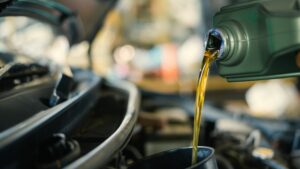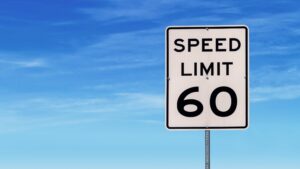Fuel efficiency is an important consideration for many drivers, especially with fluctuating gas prices and environmental concerns. Whether you’re driving a Honda or Chevrolet, there are several practical ways to maximize your vehicle’s fuel efficiency. From simple maintenance practices to adjusting your driving habits, these tips can help you save fuel and get the most out of every mile. Let’s dive into some expert recommendations to help you improve your vehicle’s fuel economy.
1. Keep Your Tires Properly Inflated
Tires play a crucial role in fuel efficiency. Under-inflated tires create more rolling resistance, which forces your engine to work harder and use more fuel. To get the best fuel efficiency from your Honda or Chevrolet, check your tire pressure regularly and ensure it matches the manufacturer’s recommendation. You can find the proper tire pressure in your owner’s manual or on the sticker inside the driver’s side door.
According to the U.S. Department of Energy, keeping your tires properly inflated can improve your gas mileage by up to 3%.
2. Regular Oil Changes and Engine Maintenance

Routine maintenance, such as oil changes, is essential for keeping your engine running efficiently. Old or dirty oil can cause your engine to work harder, reducing fuel efficiency. Make sure to follow the recommended oil change intervals for your Honda or Chevrolet, and use the manufacturer-specified oil type.
Additionally, clean air filters, properly functioning spark plugs, and regular engine tune-ups can improve overall performance and fuel economy. Consider bringing your vehicle in for a checkup if it’s due for any of these services.
3. Drive Smoothly and Avoid Aggressive Driving
How you drive has a significant impact on your fuel consumption. Rapid acceleration, hard braking, and aggressive driving can lower your gas mileage by as much as 15% to 30% on the highway and 10% to 40% in city driving, according to the Environmental Protection Agency (EPA).
For better fuel efficiency:
- Accelerate gradually instead of flooring the gas pedal.
- Anticipate traffic lights and avoid hard braking.
- Maintain a steady speed and use cruise control on the highway when appropriate.
4. Reduce Your Vehicle’s Weight
The heavier your vehicle, the more fuel it requires to move. Removing unnecessary weight can help improve fuel efficiency. Take out heavy items like sports equipment, tools, or luggage that you don’t need for daily driving. Additionally, avoid using roof racks when not in use, as they increase wind resistance and drag, lowering your vehicle’s fuel efficiency.
5. Use the Air Conditioning Wisely
While air conditioning is a must for hot summer days in Wilson, NC, it can decrease your fuel efficiency when overused. Running the A/C puts extra strain on your engine, which results in more fuel consumption. To save fuel:
- Use the air conditioning sparingly and turn it off when it’s not needed.
- Consider using the vehicle’s ventilation system or rolling down your windows at lower speeds.
6. Follow the Speed Limit

Driving at high speeds burns more fuel. Most vehicles achieve optimal fuel efficiency between 50-60 miles per hour. For every 5 mph you drive over 60 mph, you are effectively paying an additional 15-20 cents per gallon due to the loss in fuel economy.
By maintaining the speed limit and driving at a consistent pace, you’ll save fuel and reduce wear on your engine and tires.
7. Avoid Excessive Idling
Leaving your engine idling for long periods wastes fuel. If you’re going to be stationary for more than a minute, it’s more fuel-efficient to turn off your engine and restart it when you’re ready to move again. Modern engines require very little fuel to restart, making this a simple way to save gas, especially when waiting in traffic or running errands.
8. Keep Up with Transmission and Brake Maintenance
A well-maintained transmission ensures smooth gear shifts and reduces the strain on your engine, contributing to better fuel efficiency. Similarly, properly functioning brakes prevent unnecessary drag on your vehicle, helping improve fuel economy.
Regular maintenance like transmission fluid changes and brake inspections are crucial for maintaining your Honda or Chevrolet’s overall performance and fuel efficiency.
9. Plan Your Trips Efficiently
Combining multiple errands into one trip can save both time and fuel. When you make several short trips with a cold engine, your car uses more fuel. By planning your errands so you make fewer stops, you can minimize the number of times you start a cold engine and improve overall efficiency.
Improve Fuel Efficiency with Expert Maintenance at Hubert Vester Auto Group
By following these tips, you can get the most out of every tank of gas and extend the life of your Honda or Chevrolet. At Hubert Vester Auto Group, we offer professional maintenance services to help ensure your vehicle is running at peak efficiency. From routine oil changes to tire checks and engine tune-ups, our certified technicians are here to assist.
Take advantage of our Chevrolet service specials and Honda service deals to save on your next maintenance visit. Ready to improve your car’s fuel economy? Schedule a service appointment online today or give us a call at (252) 677-5175.

